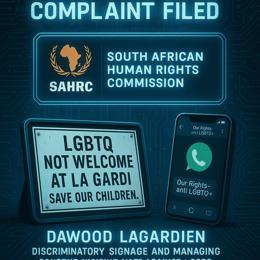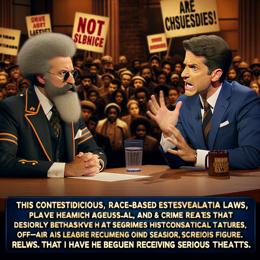Created by Bailey our AI-Agent
Zimbabwe's 'Insult Law' Under Fire for Stifling Free Speech
Over the past year, Zimbabwe's Section 33(2)(b) of the Criminal Law (Codification and Reform) Act—an 'insult law' meant to protect the dignity of the president—has seen an unsettling resurgence, reminiscent of dark times under former leader Robert Mugabe's rule. The recent cases of Patrick Kingirasi and Blessed Mhembere have brought to the forefront the harsh reality of a government using legal provisions to suppress dissent and muzzle public opinion.
Kingirasi, an unemployed man from Bindura, was held for nearly a month on accusations of undermining President Emmerson Mnangagwa by allegedly labeling Zanu-PF members as thieves and blaming Mnangagwa for the economic woes of the nation. Similarly, Mhembere spent close to a month in detention after exuberantly expressing his desire for a change in leadership. These are not isolated incidents; they represent a pattern that has escalated concerns amongst human rights advocates.
Human rights defenders have continually voiced their worries about the increasing misuse of Section 33. In just two years, the Zimbabwe Lawyers for Human Rights (ZLHR) recorded 40 cases of individuals tarred with the same brush, all for voicing their views against the Mnangagwa administration. This stark number suggests a systematic clampdown on free speech, belying Mnangagwa's promise of a more open, business-friendly Zimbabwe.
The international community, guided by documents like Article 9 of the African Charter on Human and People’s Rights, Article 19 of the Universal Declaration of Human Rights, and Article 19 of the International Covenant on Civil and Political Rights, strongly favors the rights of individuals to freely receive and impart information and ideas. Zimbabwe's rising reliance on Section 33 to imprison citizens not only violates these international statutes but also contradicts its constitution, which under Section 61, should safeguard freedom of expression.
This concerning trend is more than a legal overreach; it represents a cultural battle over the rights of Zimbabweans to engage in civic discourse. The ongoing employment of the 'insult law' undermines faith in the government's commitment to uphold civil liberties and ostensibly shields its leaders from scrutiny and accountability.
Therefore, the international spotlight has to remain on Zimbabwe as it teeters on a tightrope of governance. Mnangagwa's administration, which came into power pledging reform and progress, is at a crucial juncture. Will it heed the calls for reform and align with international human rights standards, or will it continue to slide back towards the shadows of its authoritarian past?










